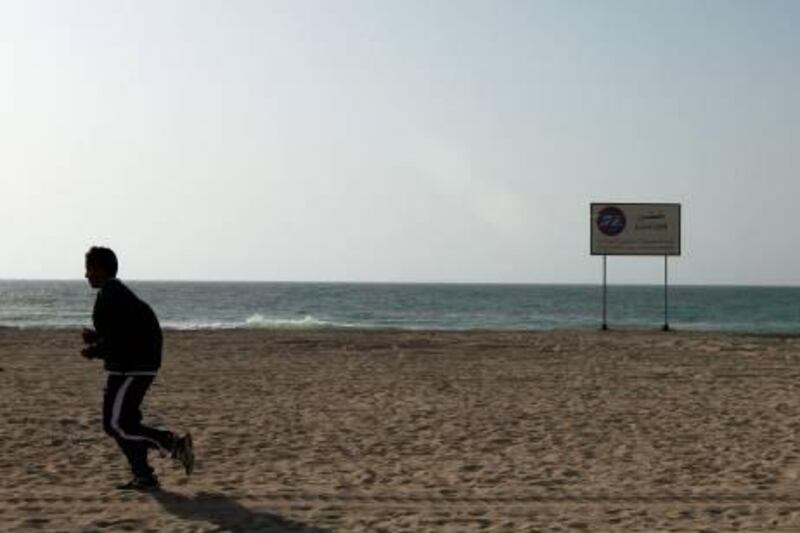SHARJAH // A 10-year-old boy drowned while swimming off the Corniche beach last weekend, and a second man could have been another victim but for a police rescue.
Five hours before the body of Khalid Dawood was recovered from the sea, a 35-year-old Egyptian man was also pulled from the water after he got into difficulties.
"We had two water accidents that Friday, one in which the boy died, and our team managed to rescue the other resident," a police spokesman said yesterday. "The two cases were a result of bad weather, with big waves sweeping the shores.
The Egyptian swimmer was to blame for risking his own life, the spokesman said. "He had intentionally gone so far out to sea, crossing the set line for the authorised swimming area."
Other swimmers saw him struggling and called the Coast Guard, who were stationed near by monitoring the shore. The man was taken to Kuwait Hospital and discharged on Saturday.
The 10-year-old Emirati boy had been swimming with friends about 10pm on Friday when he was suddenly swept from the shore by a powerful rip tide. Although he struggled against the strong current, he quickly became unable to swim, the spokesman said.
"We received a notification about the accident and we immediately moved to rescue him, but he was already dead. Besides the bad weather, it was at night and quite dark. The boy was just in the company of his other friend, almost the same age, and he could only call for help when he couldn't see him."
The spokesman warned parents against allowing their children to swim without adult supervision and said it was even more dangerous to swim at night, when visibility was low and rescue attempts difficult.
Those who insist on swimming should take note of warnings about which places were dangerous - beaches with rocks or rip currents.
"What happens is that most young people enjoy swimming in such a dangerous atmosphere. They show their friends how good they are at cutting the heavy waves or currents, and often their friends will also salute them when they make it. But if they fail, then they will call us."
In Ajman, beach rescue teams pulled an Indian man from the water as he was on the verge of drowning, said Brigadier Saleh Saeed al Matrooshi, the director general of Ajman Civil Defence.
The man had been swept out to sea by rip currents, but nearby shore patrols saw him and rescued him. He was taken to Sheikh Khalifa Hospital for treatment.
The Sharjah spokesman said swimmers needed to be extra careful in high winds or other bad weather.
"The best thing is to stay out of the water and out of danger on those days," he said.
In Umm al Qaiwain, workers are adding new warning signs for swimmers.
Signboards on the emirate's beaches, including the UAQ Corniche, telling swimmers about potentially dangerous areas are either old or missing.
In the next few weeks the municipality will tear down dilapidated signposts and replace them with new, clearer versions.






